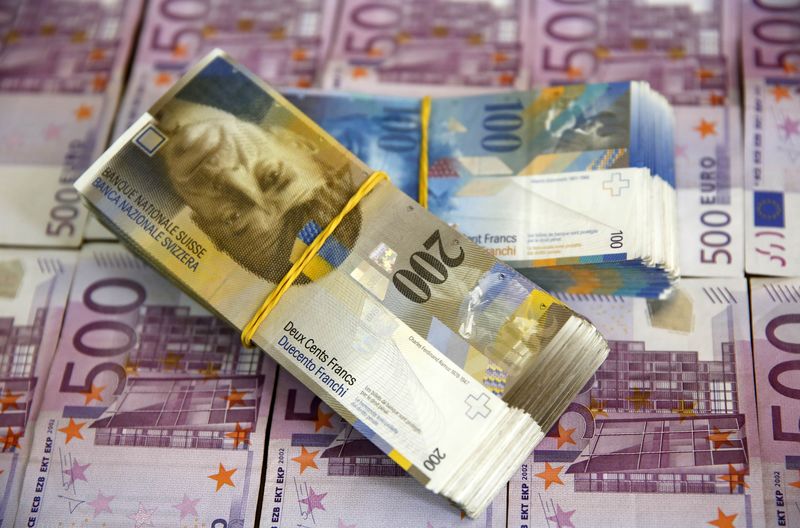Investing.com - The euro fell against the Swiss franc on Friday, pulling back from two-week highs hit in the previous session amid speculation that the Swiss National Bank was intervening in markets to weaken the franc.
EUR/CHF was down 0.86% to 1.0479 in late trade, off Thursday’s highs of 1.0640, the most since January 15.
The euro was pressured lower by steep losses against the dollar, which rallied after a robust U.S. jobs report for January reinforced expectations for a mid-year rate hike by the Federal Reserve.
The euro has been floating freely against the Swiss franc since Switzerland’s central bank abandoned its cap on the franc on January 15, sending the franc surging higher against the euro and the dollar.
The announcement came a week before the European Central Bank unveiled a €60 billion quantitative easing program, which would have sparked increased demand for the safe haven franc.
The SNB has indicated that it is still prepared to intervene in currency markets, even after abandoning its cap.
Late last month, Swiss media reported that the SNB is now unofficially targeting an exchange rate corridor of 1.05 to 1.10 francs per euro.
Figures from the SNB on Friday showed that the value of its foreign currency holdings rose to 498.4 billion Swiss francs in January from 495.1 billion francs in December.
The data indicated that the bank purchased approximately 60 billion Swiss francs worth of foreign currencies last month, in a bid to stem the appreciation of the franc.
In the week ahead investors will continue to monitor the progress of Greek debt negotiations, after the ECB said Thursday it will no longer accept Greek bonds as collateral for lending, shifting the burden on to Greece’s central bank provide additional liquidity for its lenders.
Standard and Poor’s downgraded Greece to B- from B late Friday, one notch above default, and kept the outlook at "negative", indicating that further ratings cuts are possible.
The euro zone is to release what will be closely watched data on fourth quarter economic growth on Friday, while Switzerland is to produce data on consumer inflation on Tuesday.
Ahead of the coming week, Investing.com has compiled a list of these and other significant events likely to affect the markets. The guide skips Thursday as there are no events on this day.
Monday, February 9
In the euro zone, Germany is to release data on the trade balance.
Tuesday, February 10
In the euro zone, France is to release data on industrial production.
Elsewhere, in Europe, Switzerland is to produce data on consumer inflation.
Wednesday, February 11
In the euro zone, the euro group of finance ministers is to meet in Brussels.
Friday, February 13
The euro zone is to release preliminary data on economic growth.
Switzerland is to produce data on producer price inflation.
